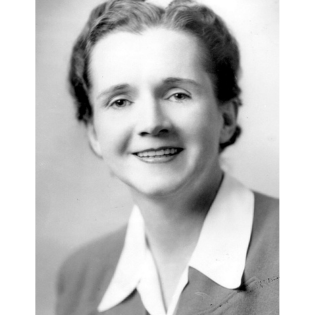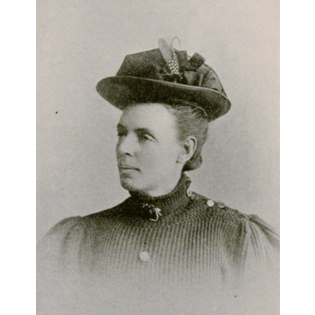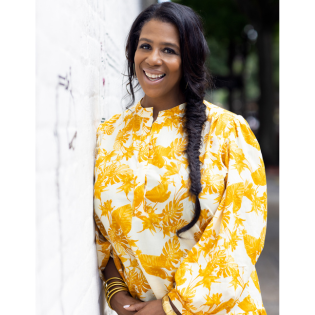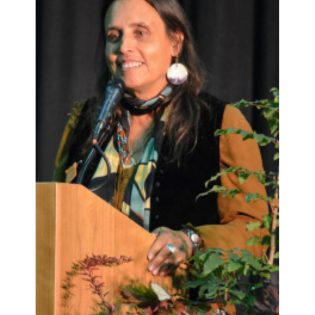As we celebrate Women's History Month, it's essential to recognize and honor the remarkable contributions of women in various fields. One such area where women have made profound and lasting impacts is conservation. From pioneering research to grassroots activism, women have been at the forefront of efforts to protect our planet's precious ecosystems and wildlife.
Throughout history, women conservationists have defied societal norms and barriers to pursue their passion for environmental stewardship. Their stories inspire us to continue the fight for a more sustainable and equitable world. In this blog post, we pay tribute to just a few of these unsung heroes, shedding light on their extraordinary achievements and the invaluable legacy they leave behind. Join us as we delve into the lives and work of women who have dedicated themselves to preserving our natural heritage for future generations.
Rachel Carson

Rachel Carson, writer, scientist, and ecologist, grew up simply in the rural river town of Springdale, Pennsylvania. Her mother bequeathed to her a life-long love of nature and the living world that Rachel expressed first as a writer and later as a student of marine biology.
Carson graduated from Pennsylvania College for Women (now Chatham University) in 1929, studied at the Woods Hole Marine Biological Laboratory, and received her MA in zoology from Johns Hopkins University in 1932. She was hired by the U.S. Bureau of Fisheries to write radio scripts during the Depression and supplemented her income writing feature articles on natural history for the Baltimore Sun. She began a fifteen-year career in the federal service as a scientist and editor in 1936 and rose to become Editor-in-Chief of all publications for the U. S. Fish and Wildlife Service. She wrote pamphlets on conservation and natural resources and edited scientific articles, but in her free time turned her government research into lyric prose, first as an article "Undersea" (1937, for the Atlantic Monthly), and then in a book, Under the Sea-Wind (1941).
In 1952 she published her prize-winning study of the ocean, The Sea Around Us, which was followed by The Edge of the Sea in 1955. These books constituted a biography of the ocean and made Carson famous as a naturalist and science writer for the public. Carson resigned from government service in 1952 to devote herself to her writing. She wrote several other articles designed to teach people about the wonder and beauty of the living world, including "Help Your Child to Wonder," (1956) and "Our Ever-Changing Shore" (1957), and planned another book on the ecology of life. Embedded within all of Carson's writing was the view that human beings were but one part of nature distinguished primarily by their power to alter it, in some cases irreversibly.
Disturbed by the profligate use of synthetic chemical pesticides after World War II, Carson reluctantly changed her focus in order to warn the public about the long-term effects of misusing pesticides. In Silent Spring (1962) she challenged the practices of agricultural scientists and the government and called for a change in the way humankind viewed the natural world.
Carson was attacked by the chemical industry and some in government as an alarmist, but courageously spoke out to remind us that we are a vulnerable part of the natural world subject to the same damage as the rest of the ecosystem.
Testifying before Congress in 1963, Carson called for new policies to protect human health and the environment. Rachel Carson died in 1964 after a long battle against breast cancer. Her witness for the beauty and integrity of life continues to inspire new generations to protect the living world and all its creatures.
Source: Linda Lear www.rachelcarson.org
Cornelia Crosby

Cornelia Crosby's legacy lives on as a trailblazer for women in outdoor recreation and conservation. Her pioneering spirit, advocacy, and passion for the outdoors continue to inspire us to cherish and protect the natural world.
In addition to her work as a journalist, Crosby was a trailblazer in the field of women's outdoor education. She co-founded the Maine State Sporting Camp Association and was instrumental in establishing camps and guiding services that welcomed women into traditionally male-dominated outdoor pursuits.
As a columnist for the "Bangor Daily News" in Maine, Crosby used her platform to promote outdoor recreation, champion environmental stewardship, and advocate for the protection of wilderness areas. Her writing not only inspired countless individuals to embrace the joys of fishing and outdoor adventure but also raised awareness about the importance of preserving our natural heritage for future generations.
Cornelia Crosby, born in 1854, defied societal norms of her time to become one of the first female sportswriters in the United States. Her passion for fly fishing and the great outdoors led her to become an influential advocate for conservation and the preservation of natural spaces.
Cornelia “Fly Rod” Crosby was Maine’s first licensed guide. Her column, “Fly Rod’s Notebook,” became a hit from Maine to New York, Boston and Chicago. The Phillips native used her platform to recount her many fishing adventures, and also to promote wildlife conservation through catch-and-release fishing as well as bag limits on deer, salmon and trout.
Source: https://www.amff.org/portfolio/graceful-rise-yesterday/agr-cornelia-thurza-crosby/
Rue Mapp

Rue Mapp candidly documents her personal experiences while pioneering and shifting a new visual representation of Black people in the outdoors. The outdoorswoman transformed her kitchen table blog into a nature-inspired enterprise and movement. Today, Mapp is the founder and CEO of Outdoor Afro. For more than a decade, the national not-for-profit organization has continued to celebrate and inspire Black connections and leadership in nature across the United States. Mapp’s work in nature and outdoor-related fields started in her hometown of Oakland, California, and has since grown to inspire international headlines.
Mapp is an awarded and inspirational leader, speaker, public lands champion, outdoor gear designer, and published author. She established for-profit enterprise Outdoor Afro, Inc. in 2021 and subsequently launched a 22-piece hike collection with outdoor retailer REI Co-op. Her first national book titled “Nature Swagger” released with American publisher Chronicle Books on Nov. 1, 2022.
For more than a decade, Mapp has been recognized with many awards and distinctions. She won the 2023 international Bessie Awards in the JourneyWoman category by global lifestyle and travel brand Wanderful. She was recognized as a 2021 AFAR Travel Vanguard Award recipient, 2019 National Geographic Fellow, Heinz Awards Honoree, and National Wildlife Federation Communication Award recipient (received alongside President Bill Clinton).
Mapp has served on several nonprofit boards, including the Outdoor Industry Association, Rails-to-Trails Conservancy, and the American Camp Association. She was appointed by California governors Jerry Brown and Gavin Newsom to the California State Parks and Recreation Commission where she served for eight years and was voted to chair. Currently, she’s vice chair for The Wilderness Society and on the executive committee of the Theodore Roosevelt Conservation Partnership boards both based in Washington, D.C.
The White House also invited Mapp to participate in the America’s Great Outdoors Conference, which led to her participation in the launch of former First Lady Michelle Obama’s “Let’s Move” initiative. Mapp’s career and community impact aims to lift up the natural world and those who connect with it. Her advocacy for conservation continues to earn international media attention, including The New York Times, Good Morning America, NPR, NBC’s TODAY, Forbes, Oprah Winfrey, and “MeatEater” with Steven Rinella.
Source: https://ruemapp.com/
Winona LaDuke

Winona LaDuke, a prominent Native American activist, economist, and author, has dedicated her life to advocating for Indigenous control over their lands, resources, and cultural practices. Born in 1959 to Anishinaabe parents, she developed a deep connection to her heritage through exposure to tribal events and summers spent in Native communities.
LaDuke's advocacy extends beyond her organizations, including co-founding Honor the Earth and running as Ralph Nader’s vice-presidential candidate in 1996 and 2000. She has received numerous honors for her work and continues to champion Native American environmental interests, notably participating in the Dakota Access Pipeline protests. LaDuke now focuses on farming, particularly promoting hemp as an environmentally friendly crop through her Hemp & Heritage Farm, aiming to create an Indigenous women-led economy based on local resources.
After graduating from Harvard, her involvement in Native issues grew, leading her to work on campaigns against resource exploitation and to establish organizations like the Indigenous Women’s Network and the White Earth Land Recovery Project (WELRP). WELRP focuses on reclaiming reservation lands for sustainable development and economic opportunity, implementing initiatives such as renewable energy projects and indigenous farming.
Sources: MLA – Brandman, Mariana. “Winona LaDuke.” National Women’s History Museum, 2021. 3/14/2024. Chicago – Brandman, Mariana. “Winona LaDuke.” National Women’s History Museum. 2021. www.womenshistory.org/education-resources/biographies/winona-laduke

